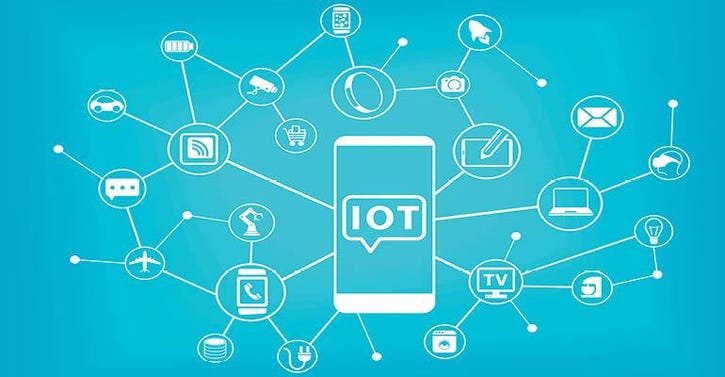Experts Predict Top Technologies in 2019
Three waste and recycling industry experts provide their top three technology picks for 2019.
While the waste and recycling industry is rarely an early adapter of new technologies, for both cultural and operational reasons, experts predict that in 2019, if a new technology or process is proven to work, it will be adopted by a wide variety of companies and local governments.
“Technology has made the waste and recycling industry more efficient and effective,” says David Biderman, executive director and CEO of the Solid Waste Association of North America (SWANA). “The majority of new collection trucks placed into service are fueled by natural gas, not diesel. This results in lower emissions. Automated trucks have replaced traditional manual rear load trucks in many markets. This is safer for the collection worker and allows haulers and local governments to collect more waste per residential route.”
New technology also can have a negative effect on the industry, according to Kirk M. Sander, vice president of safety and standards for the National Waste & Recycling Association (NWRA).
“Technology has had a positive impact on the industry from more fuel-efficient vehicles, to camera systems that help with crash and incident investigation, to many other improvements developed through the consensus standards process,” he says. “Technology has also had a devastating effect. With the proliferation of mobile phones and in-car infotainment systems, we have seen more fatalities from distracted driving. We look forward to new technologies that will make the industry safe.”

According to Dan Labin, director of information technology at Rumpke Waste & Recycling based in Cincinnati, Ohio, technology connects us, and as a result, the pace of business has increased to meet both industry and customer demands.
“Technology has had an enormous and positive impact on the industry. With technology in place, not only are administrative tasks completed with ease and efficiency, but technology provides access to real-time information that allows us to respond proactively versus reactively,” says Labin. “Data from our technology solutions drive our decisions and help us best reach our objectives. Technology has paved the way for increased customer communications and interaction.”
But what is next for the waste and recycling industry when it comes to technology? The experts give us their top three picks for 2019.
For Rumpke, Labin says low-code platforms, the Internet of Things (IoT) and cloud computing are the future.

6. The Waste and Recycling Industry and the Internet of Things
“Low-code provides a faster way to build and execute enterprise apps (mobile and web browser based),” he says. “Low-code also allows us to innovate swiftly to deliver applications that improve efficiency and enhance experience. Rumpke is currently developing and deploying four safety applications.”
According to Labin, Rumpke is acutely focused on improving management of its 1,900-vehicle fleet. This includes a data-driven approach to safety, fleet maintenance and overall management. Recently, the company has partnered with MyGeotab to provide fleet tracking devices and a reporting platform.
“Rumpke is partnering with SAP HEC to develop a scalable infrastructure for future applications (SAP HANA). This will help us deploy SAP HANA applications and upgrade our platform quickly,” says Labin.
Biderman says driverless vehicles, waste-to-fuel or plastics-to-chemicals and blockchain will have the biggest impact on the industry in the near future.
"I think driverless vehicles will be the top emerging technology affecting the solid waste management industry in the coming years,” he says. “Although they are unlikely to come to market in 2019, autonomous vehicles and landfill equipment are being tested in a variety of pilot programs and offer potentially significant operational efficiencies. Importantly, they could be part of the solution to the worsening driver shortage.”
A second emerging technology to keep an eye on is waste-to-fuel and plastics-to-chemicals. With China's ban on imported plastics, and other Asian countries imposing restrictions on imports, a variety of technologies and processes are being considered to convert waste and plastics 3-7 into fuel or back into feedstock for chemicals, says Biderman.
At NWRA, Sander says he sees a rapidly changing environment for roadway safety in the coming years, especially with the expanded on-road testing of automated vehicles.
“Technologies such as automatic emergency braking (AEB) and vehicle-to-vehicle communication could help to make the industry safer,” he says. “An AAA Foundation report demonstrates how AEB could reduce crashes. Vehicle-to-vehicle communication is finally showing potential, though NWRA will be watching the FCC’s [Federal Communication Commission] decision regarding spectrum allocation.”
During the next two years, Rumpke will complete a technology transformation during which the company will replace many of its existing accounting, operations and maintenance applications.
“Upgrades and integrations to our SCADA system and glass processing facilities will occur this year, as well as continued improvements to our human resources information system, website, social media channels and other internal technology,” says Labin.
Although traditionally viewed as a "mature" low-tech industry, technology has embedded itself into every operation in the waste and recycling industry, says Biderman.
According to Amanda Pratt, director of communications at Rumpke Waste & Recycling, choosing the right technology at the right time is the key to its success in waste and recycling.
“Technology moves Rumpke forward, but at the end of the day, we cannot underestimate the power of selecting the right technology and at the right time,” she says. “At Rumpke, we constantly ask ourselves, ‘Does this technology make life better for our employees, our customers and the environment?’ If not, then we need to keep working toward the best solution.”
About the Author
You May Also Like


